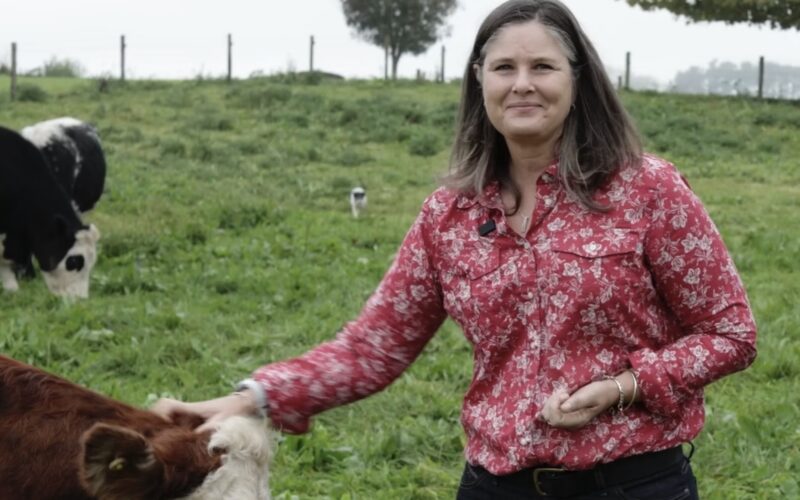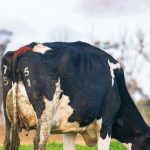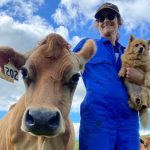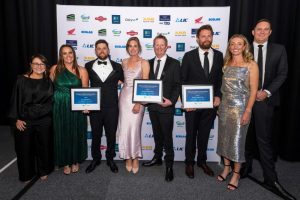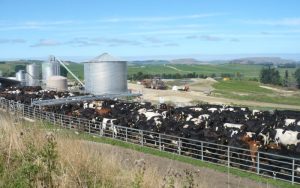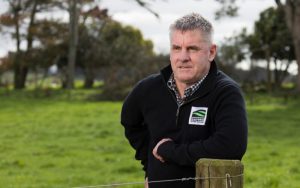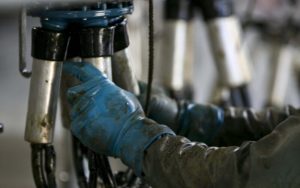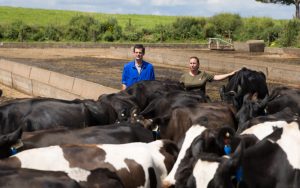
Former dairy farmer Mandi McLeod has experienced three significant work-related injuries – so she speaks from the heart when she says New Zealand “needs a circuit breaker” to address the unacceptable number of accidents on farms.
“We have to find ways to communicate with people that resonates with them,” said McLeod, from Pirongia. She suffers ongoing effects from brain trauma from a quad bike rollover in her teens, and from being kicked by a horse in 2007. She’s also currently in a moonboot after fracturing her tibia.
“Nothing will change until we accept that what we are doing is not working and that we have to find ways of doing it differently. I do think there needs to be more support and tools for farmers to help them to provide health and safety training that is up to task and also how to have those conversations with employees that encourages them to step up and take personal responsibility for their safety too.”
For McLeod, a critical aspect would be a shift from an industry culture where, she said, taking time to plan a job or managing fatigue and looking after wellbeing is still often regarded as inaction or laziness.
“It won’t be easy, it’s the culture we have been brought up in, but we need to ‘slow down to speed up’,” she said.
“In most industries, 70% of time is spent on planning, so the rest can be spent on achieving the task most effectively.
“Too often in farming, people just jump on a motorbike and head off to do a job, rather than saying ‘Let’s plan how to do this in the best way and safely – better, not faster’.
“As employers, we need to change the attitude that planning is for sissies and doing it is wasting time, or that managing fatigue or illness is laziness.
“That will mean changing the way we look at employees and recognising that the most effective people are those that say, ‘Let’s discuss how to do this first.’ It’s about recognising that planning ahead for tasks is a more efficient way of farming.”
McLeod now works as an agribusiness consultant specialising in succession planning and animal welfare but she grew up on a dairy farm in Morrinsville and experienced her first serious injury in her late teens.
“It was the classic story of inattention. My sister had just come back from Argentina. I was relief milking and was operating the quad and she was sitting on the side. I was chatting to her, not speeding but not fully focused. I ran up a cow track on the race and flipped the bike.
“It all seemed to happen in slow motion. My sister was thrown off but I bounced my head off the bike – this was before helmets – and also broke my collarbone. I came round with the bike on top of me.”
McLeod gained an agriscience degree at Massey University, followed by a Master’s in rural systems management at the University of Queensland, going on to work on farm extension work as well as on the family farm.
She experienced two further concussions, one while playing rugby and another in a riding accident. Then, in 2007, she suffered severe brain trauma when she was kicked in the head by a horse while walking across a paddock to feed calves.
The cumulative effects of her head injuries have resulted in multiple concussion syndrome. Fatigue is a big issue for her along with severe headaches and trauma-induced anxiety and depression.
“I wouldn’t wish it on anyone,” she said. “When I experienced my first head injury, I wasn’t even treated for it, the focus was on my collarbone. The attitude in farming was – and I think it is still pervasive today – ‘If you can walk, you can work – get up and get on with it’ but every head injury has played a role in my condition today.
“It contributed to me leaving dairy farming, I can’t work full time. We have a 12 hectare ‘urban ranch’ with a beef cow breeding operation that keeps me sane and keeps my hand in and lets me pretend I’m still farming big time.”
McLeod’s experiences have made her more mindful of how she approaches farm work. She plans her escape route ahead of starting any tasks and protects her head at all costs – she said she would “rather be naked than ride a bike without a helmet”.
Safe handling of livestock is a passion. She is currently undertaking a further thesis looking into lack of training in animal handling in the dairy sector.
She uses a quad bike only when it’s essential but recently hooked up a trailer up and headed out to deal with some fencing before winter. As she stepped off the bike, she rolled her foot in a hoof hole and “heard the crack”.
She recognises that, like almost every workplace accident, it was entirely avoidable.
“I had put my work boots on as I knew that would be better than gumboots but I hadn’t laced up the third hole so really they were about as much use as tits on a bull.
“And, yes, it’s like the things I see people doing on farms all the time that frustrate me – and I know it frustrates farmers too – like people refusing to wear helmets or wearing them but not doing the strap up or allowing children to play around machinery or the dairy.
“You can mandate safe behaviour in people’s contracts, they can provide all the required safety equipment but you cannot watch people every hour of the day.
“So it comes down to changing attitudes – we have to find a way to encourage personal responsibility in this whole safety game.”
You can now read the most important #news on #eDairyNews #Whatsapp channels!!!
🇺🇸 eDairy News INGLÊS: https://whatsapp.com/channel/0029VaKsjzGDTkJyIN6hcP1K
